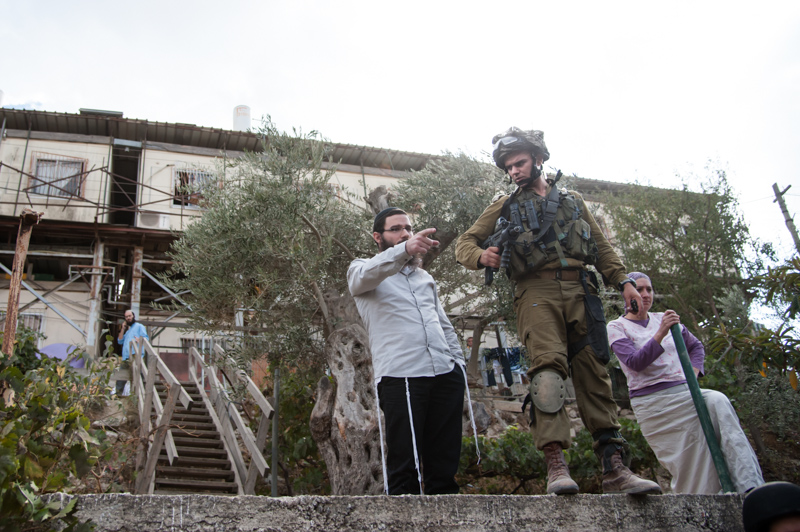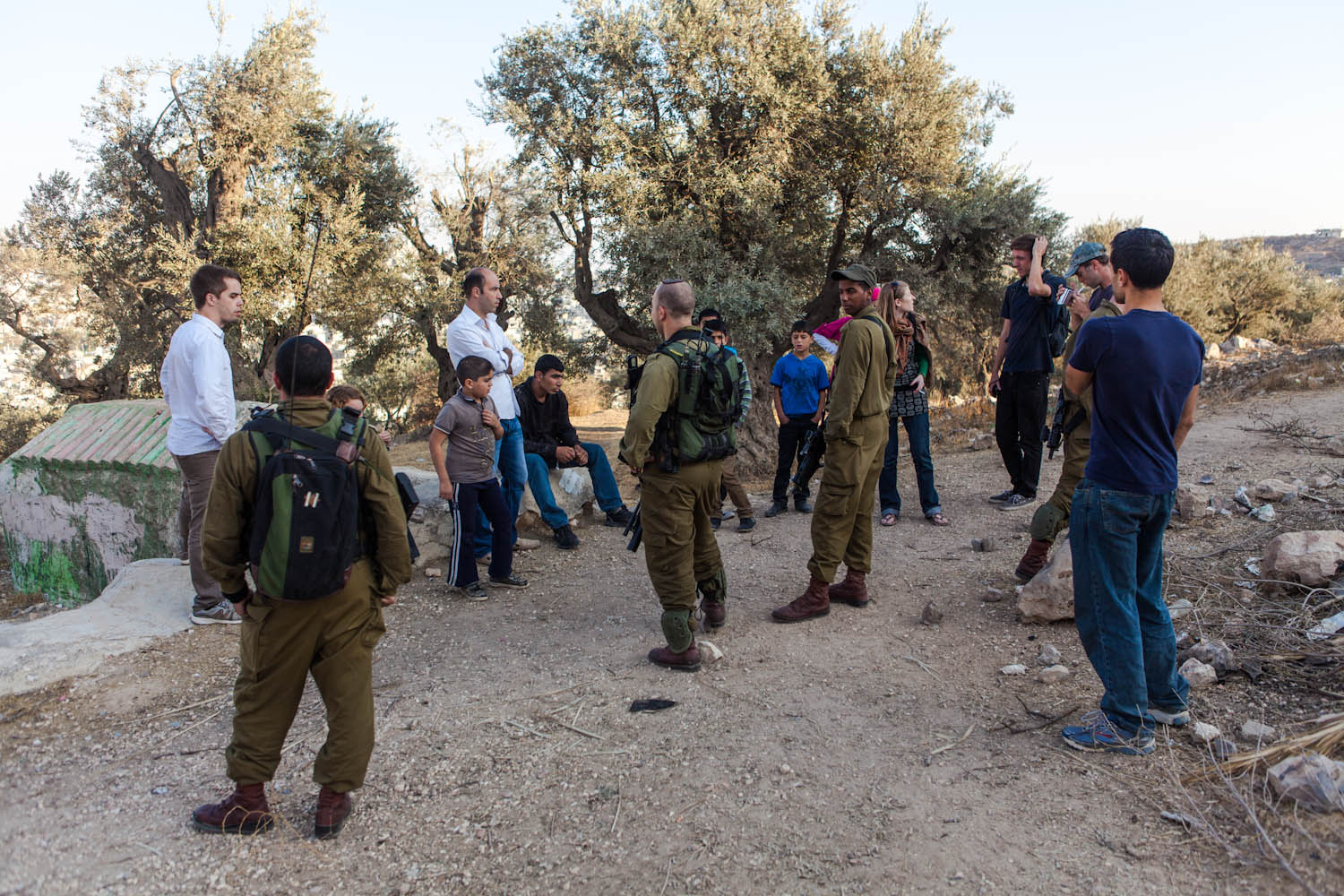Tag: Tel Rumeida
-
Settlers attack children in Hebron
by Team Khalil 13 December 2012 | International Solidarity Movement, West Bank After school on the 13th of December in Al Khalil (Hebron) two children were attacked by a group of settlers. Younes Azzeh, age nine, and his sister Raghad Azzeh, age fourteen, were attacked by three male settlers that are speculated to be between…
-
38 Military Orders on homes in Tel Rumeida, Hebron
4 December 2012 | International Solidarity Movement, West Bank There are 38 military orders issued on homes in Tel Rumeida and Hebron. On Sunday 3rd December the District Coordination Office (D.C.O.) and the lawyers representing the families who have military orders put on their homes were supposed to be visiting the sites that the orders…
-
Settler attacks Palestinian man in Hebron – Israeli soldiers look on
9th November 2012 | International Solidarity Movement, West Bank On Thursday in Hebron, Palestinian activist Imad Al Atrash was beaten by an illegal Israeli settler whilst two soldiers watched, without intervening. Imad reports that he was walking through an olive grove in Tel Rumeida when a man from a nearby illegal settlement shouted abuse at…


